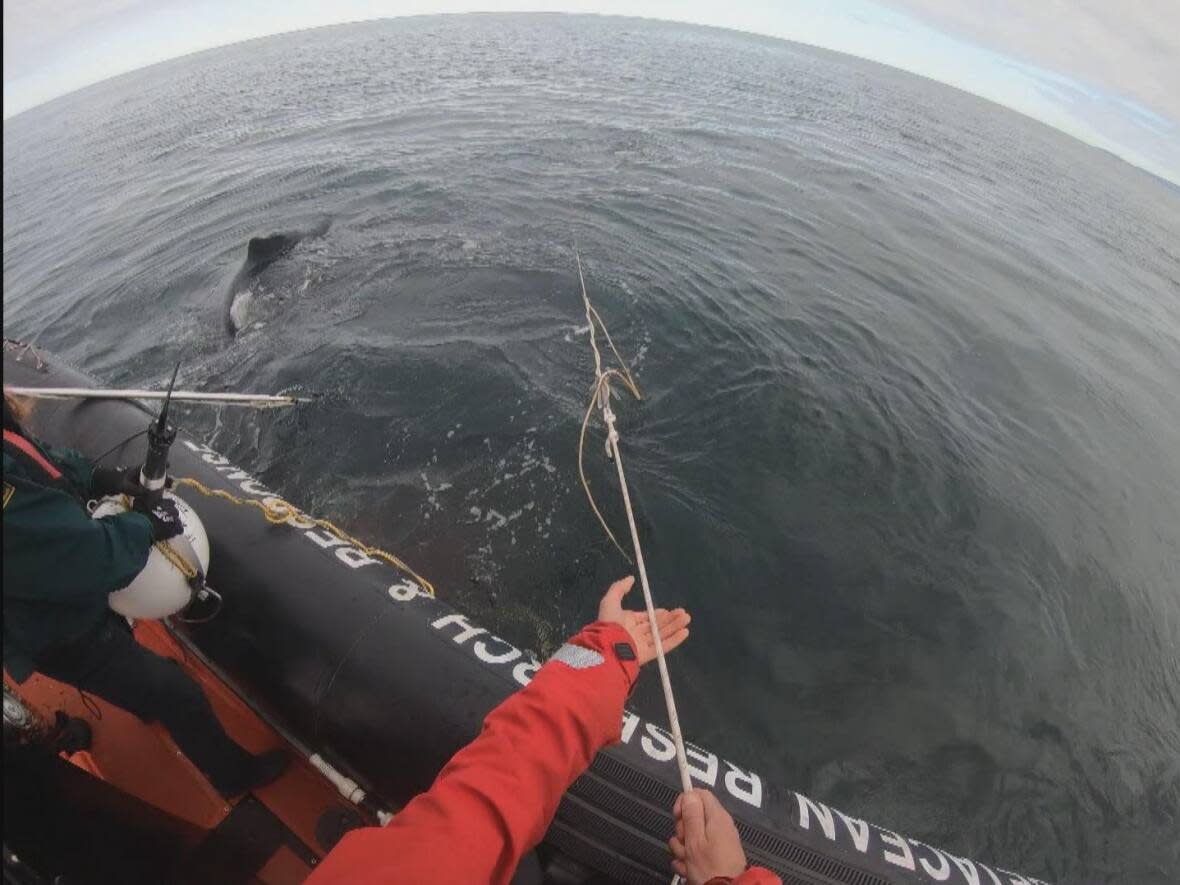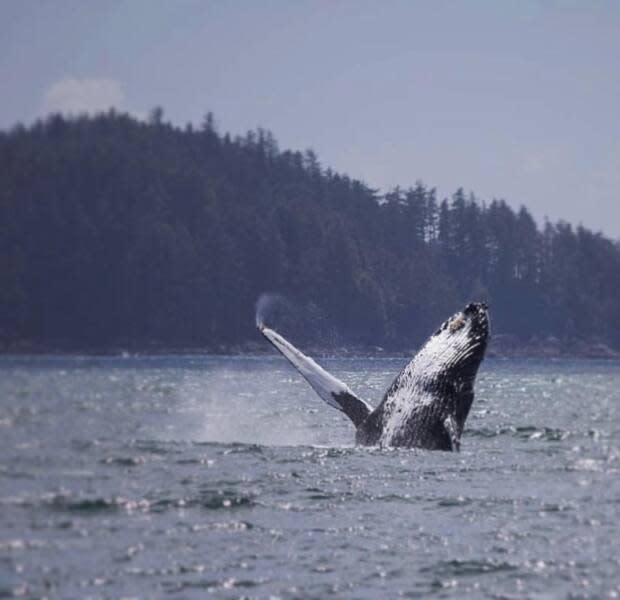Humpback whale rescued after being entangled in rope in B.C. waters

Marine researchers are warning the public to keep an eye out for humpback whales entangled in fishing gear, after one humpback was extricated from polysteel rope off the coast of Haida Gwaii in the province's northwest.
It has also led to a call for a proper assessment of what is causing whale entanglement in B.C., with one researcher saying the problem could be widespread.
The rescue of the humpback on May 25 came after a call from the public, according to the Department of Fisheries and Oceans.
Paul Cottrell, the marine mammal response lead for the department, said the whale was in a "really, really awful" situation and likely would have died if not for the rescue.
"It was hog-tied — so, the rope was through the mouth, back to the tail fluke and tailstock and actually wrapped around tight," he told CBC News.
"In terms of the injury and the disfigurement to the animal, this is one of the worst, if not the worst I've dealt with."
WATCH | DFO rescuers help whale entangled with polysteel rope:
Cottrell says it's likely the whale had been wrapped up in the rope for quite a while, and that the wraps around the tailstock had penetrated an inch deep into the whale's flesh. It had likely not been able to feed for a while as a result.
After a protracted rescue period, during which the whale essentially towed the rescue boat, the marine rescuer says they managed to cut out the polysteel rope without damaging the whale's baleen — the mouth region.
"We were able to get all the gear off except for those tight tail wraps," he said. "It would have damaged the animal too much to try to cut those out."
As for whether the whale survives after the rescue, Cottrell said the rescue had given it a fighting chance.
"There's no feeling like seeing that animal swim off and we're all hoping for the best," he said. "We will keep an eye on this animal and hopefully we'll see it next year and the year after."
Researcher asks for more education
Jackie Hildering, the education and communications lead for the Marine Education and Research Society, said initial research had shown that over half of humpback whales with scars in B.C. have survived an entanglement with fishing gear. She says more research needs to be done into what fishing gear is causing the entanglements.
"This is something that has to be stopped at the source. You are never going to find all the entangled whales," she said. "They're going to just escape detection on our coast."
Humpback whales were considered a "threatened" species in B.C. until 2014 when efforts to restore their numbers resulted in success.
The North Pacific population is still considered "of special concern" under the federal Species At Risk Act, as their numbers are recovering but not yet stable.
"Unlike orca, humpbacks don't organize themselves in families, so you don't know if one dies from whatever cause," Hildering said. "Humpbacks don't have biosonar in the way that toothed whales do.
"They come back to this coast, they're hungry, they are … certainly when feeding, less aware of their surroundings."

The researcher says given how often entangled whales have begun appearing, it's imperative that boaters be vigilant and call the DFO if they spot one.
She also dissuaded boaters from attempting a rescue themselves, adding it is illegal to come close to humpback whales and entanglement rescues are dangerous even for professionals.
"The most valuable thing to do is report it immediately, and then … from a distance, [take] photos to prove who it is," she said.
If you see an entangled whale, call the B.C. Marine Mammal hotline at 1-800-465-4336, available 24 hours a day, 7 days a week.


